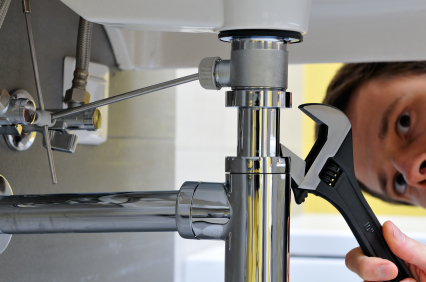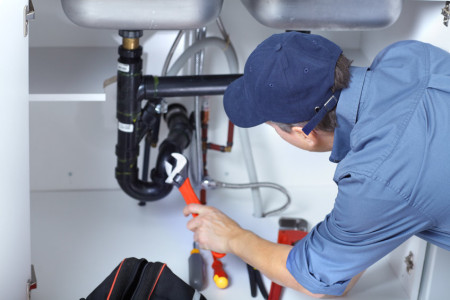Immediate Tips for Critical Situations Until A Plumber Arrives
Immediate Tips for Critical Situations Until A Plumber Arrives
Blog Article
We've unearthed this post involving Plumbing Emergencies: Tips on What To Do Before down the page on the internet and figured it made perfect sense to relate it with you over here.

Plumbing emergency situations can strike any time, creating stress and prospective damages to your home. Whether it's a ruptured pipeline, a clogged drainpipe, or a leaky tap, knowing just how to handle the situation until a professional plumbing professional gets here can conserve you from additional complications. This short article gives important emergency plumbing pointers to aid you reduce damage and regain control throughout a plumbing situation.
Turn Off the Water Supply
The initial step in any plumbing emergency situation is to shut off the water. For localized issues, such as a dripping faucet or toilet, shut off the shutoff near the component. When it comes to a major leak or burst pipe, find your home's major water shut-off shutoff and transform it off instantly. Knowing the place of these valves in advance can conserve valuable time throughout an emergency.
Shut down Your Water Heater
In particular emergencies, such as a burst pipe, it's smart to turn off your water heater. This prevents overheating or damages to the device when water quits moving. Switch off the power supply to the hot water heater (electrical or gas) and let it cool to avoid prospective hazards.
Briefly Quit a Ruptured Pipe
A burst pipeline can bring about substantial water damage in minutes. To alleviate the concern:
Call an expert plumbing technician quickly to resolve the trouble completely.
Have an Emergency Situation Pipes Set
Prepare a basic plumbing emergency package to manage small problems efficiently. Your kit should consist of:
Having these devices on hand can make a substantial difference in your ability to take care of emergencies.
Unclog Drains Securely.
A blocked drainpipe can be an irritating and untidy issue. Right here's how to tackle it:.
If these techniques do not function, stay clear of using excessive force, as it might get worse the blockage.
Handle Overflowing Toilets.
An overruning commode can trigger instant disorder. Here's what you ought to do:.
Address Little Leaks with Momentary Repairs.
Little leaks can rapidly end up being significant troubles if left untreated. Use these short-term repairs till specialist assistance shows up:.
While these repairs aren't permanent, they can aid minimize water loss and damages.
Manage Frozen Water Lines Carefully.
In chillier climates, icy pipelines are an usual emergency situation. If you believe a frozen pipeline:.
Know When to Call a Professional.
While quick fixes can aid temporarily, particular plumbing problems require instant specialist interest. Call a plumbing professional if:.
Quickly speaking to a specialist guarantees the problem is settled correctly and stops more complications.
Stop More Damage.
Taking quick activity to decrease damages can save you time and money over time. Below's exactly how:.
Conclusion.
Plumbing emergency situations can be frustrating, yet with the appropriate knowledge and tools, you can manage the circumstance successfully up until aid gets here. By switching off the water supply, resolving tiny leaks, and using short-term repairs, you can lessen damages and keep your home safe. Remember, these suggestions are momentary services; always speak with a qualified plumbing to deal with the origin of the trouble. Preparation and quick thinking are your best allies in any type of plumbing emergency.
8 Helpful Tips for Managing Plumbing Emergencies at Home
If your plumbing system hasn’t failed once, wait for it because almost everyone has a story to tell. Sometimes, it could be simple emergencies such as a leaking pipe, a blocked cistern, or even a big burst pipe. In situations like this, you need to have some handy tips to save you some money and from possible damages.
Take care of minor issues early.
Sometimes, you could have avoided an emergency by taking proactive measures while it was still early. Some major plumbing emergencies can be a result of an ignored minor issue. We recommend that you have items like plumbing tapes and other related items. A plumbing tape can allow you to manage minor leaks before the plumber arrives.
Cut off the water supply.
This tip is essential in almost any type of leakage problem. For problems like minor leakages in the toilet or kitchen, turn off the supply that takes water to the affected pipes. If the leakage is a major pipe, you must shut off the supply valve to the entire building. This will help you avoid flooding your home and neighbors if you share a flat.
Know your plumbing system
Folks typically move into a new apartment without understanding the water supply around the building. This can prove disastrous if a water emergency arises and the plumber is far away. The previous tip will prove useless if you don’t practice this one. More importantly, know where your water shut-off valve is located – you’ll need that knowledge to prevent potential home floods.
Have some common handy tools
There are lots of plumbing emergencies that you can handle without hiring a plumber. That’s why you must keep some tools available always. Some tools that you can use to fix simple plumbing emergencies easily include plumbing tapes, screwdrivers, thread seal tapes, plungers, pliers, tape measures, and rubber gloves.
Insulate your pipes from cold
You’ll save yourself from many plumbing expenses if you protect your water pipes from the cold. This is because of the harmful effects that cold weather can have on your pipes. During winter, your pipes can burst from being overly expected to freezing temperatures. So, make sure insulators are there to keep the pipes working correctly.
Avoid practices that will clog your toilet.
Many people indulge in practices that can damage the plumbing system of the entire building. One of these is when they use their toilet to dispose-off garbage. They flush all kinds of things, such as paper towels, bandages, hairs, female sanitary products, etc., down the toilet. This will block your toilet in the long run, incurring unnecessary expenditures. Dump such waste in the trash instead.
Check your dials regularly.
Sometimes, there could be leakages in your home without noticing them in time. So, constantly monitor your water meter dial. If the dial is reading when there is nobody using water, this is an indicator that there is leaking. Check for leaks immediately. Call a plumber as soon as possible if you can’t find any.
https://www.constructionplacements.com/8-helpful-tips-for-managing-plumbing-emergencies-at-home/

I stumbled upon that article about What to Do While Waiting for an Emergency Plumber while doing a lookup on the search engines. Loved our blog? Please share it. Help others discover it. I am grateful for your time. Please pay a visit to our blog back soon.
View More Report this page